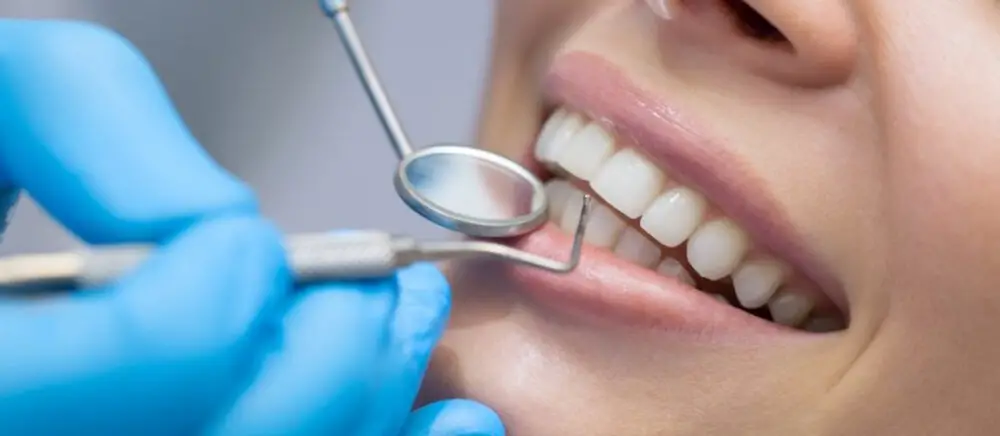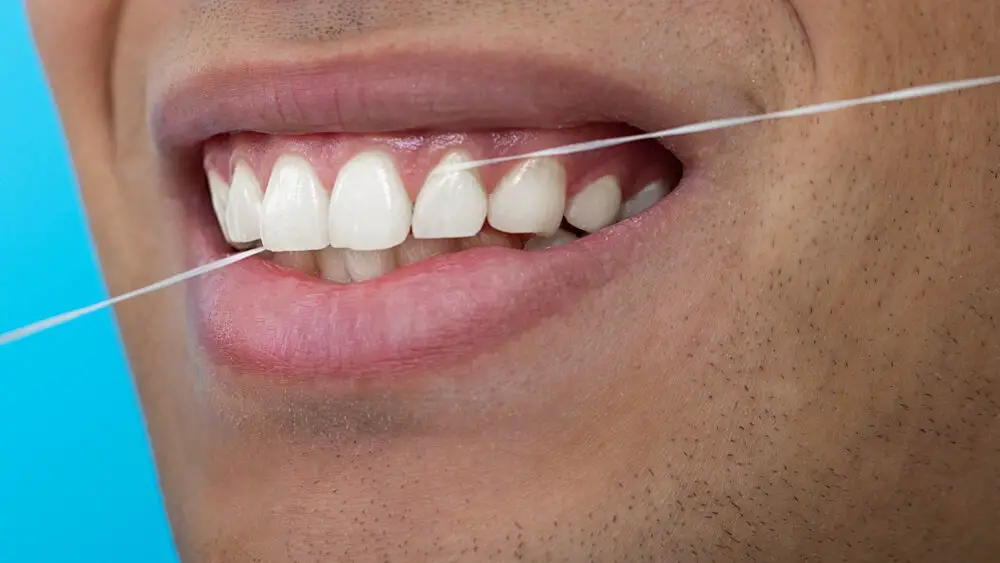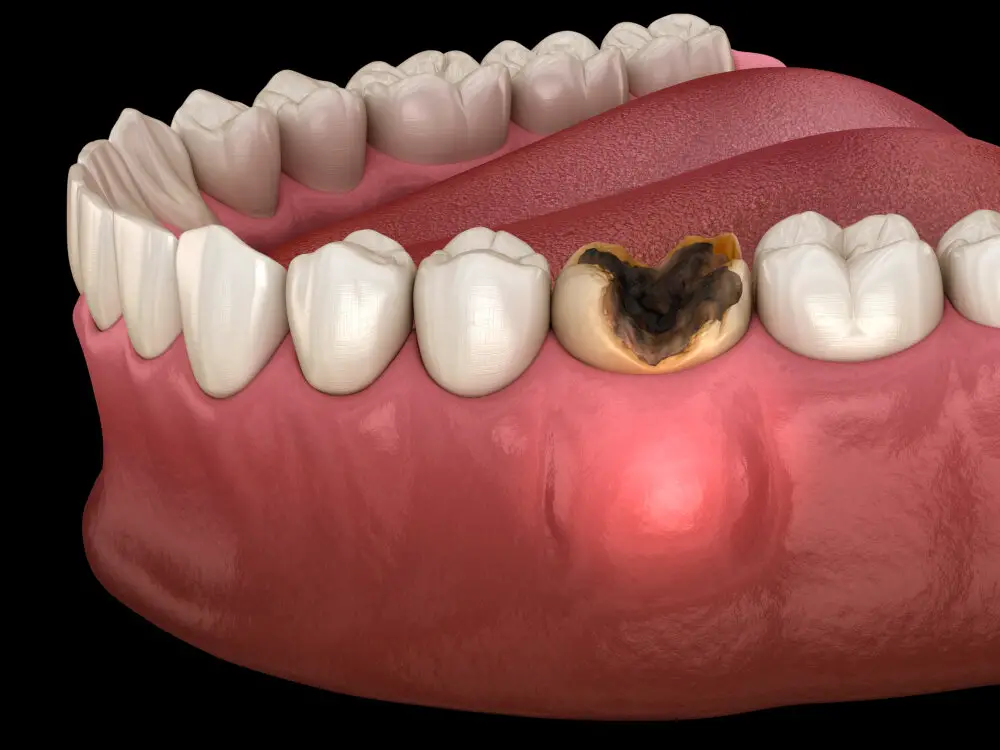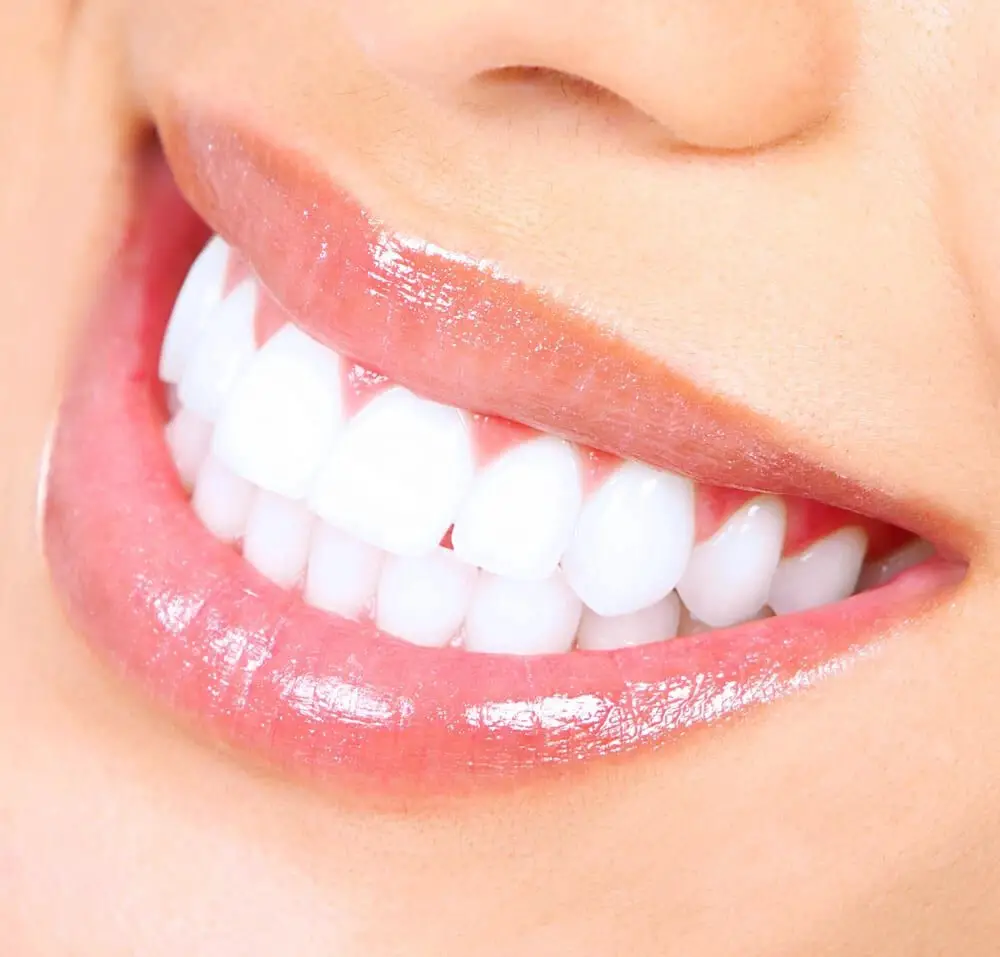Teethfriendly Smoking: How to Smoke Without Damaging Your Teeth

Smoking is one of the most common habits that people indulge in today, despite the potential health risks associated with it. While most people are aware of the damage that smoking can cause to their lungs and heart, few are aware of the impact it can have on their teeth. Cigarette smoke contains a range of chemicals that can damage the enamel of the teeth and lead to oral health issues such as gum disease, tooth decay, and even tooth loss. This is why it is important to learn how to smoke in a teeth-friendly manner, so that smokers can enjoy their habit without causing damage to their oral health. Tooth enamel is the protective outer layer of the teeth, and it is essential for maintaining healthy teeth. Smoking can cause the enamel to erode, leaving the teeth vulnerable to decay and other oral health issues. In addition, smoking can cause the gums to recede, exposing the roots of the teeth and increasing the risk of cavities and tooth loss. While quitting smoking is the best way to protect your teeth, it may not be an option for everyone. Fortunately, there are some steps that smokers can take to minimize the damage caused by smoking and keep their teeth healthy.
Smoking is a habit that can wreak havoc on your teeth, causing a host of oral health problems. Regular smoking can result in staining of the teeth, which can be difficult to remove even with professional cleaning. The nicotine and tar in cigarettes can also lead to the buildup of plaque and tartar, which can cause gum disease and tooth decay. Additionally, smoking can reduce blood flow to the gums, leading to inflammation and a weakened immune system. This can result in the loss of teeth, as well as other serious health issues such as oral cancer. In order to maintain healthy teeth while smoking, it is important to practice good oral hygiene and visit your dentist regularly.
Maintaining healthy teeth is vital not only for a beautiful smile but also for overall health. Teeth are the first line of defense for the digestive system, and their condition affects the ability to chew and digest food properly. Poor oral hygiene can lead to various dental problems such as cavities, gum disease, and tooth loss. Additionally, oral health has been linked to overall health, with gum disease being linked to various health problems such as heart disease, stroke, and diabetes. Therefore, it is essential to take care of your teeth by brushing twice a day, flossing daily, and visiting the dentist for regular check-ups and cleanings.
Types of Smoking that Damage Teeth

Smoking is one of the most harmful habits that can affect not only your lungs but also your oral health. It is a well-known fact that smoking can cause various dental problems, such as oral cancer, gum disease, tooth decay, and bad breath. However, there are different types of smoking that can damage your teeth differently. For instance, cigarette smoking is the most common type of smoking that can cause dental problems. Cigarette smoke contains tar and nicotine that can stain your teeth and cause tooth decay. Moreover, smoking can reduce blood flow to the gums, making them more susceptible to infection and inflammation. This, in turn, can lead to gum disease, which can cause tooth loss if left untreated. Another type of smoking that can damage your teeth is hookah smoking. Hookahs are water pipes used to smoke flavored tobacco. Many people believe that hookah smoking is less harmful than cigarette smoking, but this is not true. Hookah smoke contains the same harmful chemicals and toxins as cigarette smoke, such as carbon monoxide, tar, and heavy metals. Moreover, hookah smoking can cause dry mouth, which can increase the risk of tooth decay and gum disease. Additionally, the long smoking sessions and frequent sharing of the mouthpiece can spread germs and infections, leading to various oral health problems. Therefore, it is essential to avoid smoking altogether or limit it as much as possible to protect your teeth from damage.
Smoking is notorious for causing various health problems, including tooth decay and gum disease. Different types of smoking can affect teeth differently. For instance, cigarette smoking can lead to yellowing of teeth, bad breath, and an increased risk of tooth loss. Pipe smoking, on the other hand, can cause more severe damage to teeth and gums due to the higher heat and concentration of tobacco. Smokeless tobacco, such as chewing tobacco, can cause irritation and abrasion of the gums, leading to receding gums and tooth sensitivity. It is essential to understand how each type of smoking can affect teeth to make informed decisions about oral health.
Smoking is extremely harmful to teeth, and there are several examples to prove it. Firstly, smoking causes the accumulation of plaque, which can lead to tooth decay and gum disease. Secondly, nicotine reduces blood flow to the gums, causing them to recede and exposing the roots of the teeth, which can lead to sensitivity and tooth loss. Thirdly, smoking stains teeth and can cause bad breath, which can be particularly embarrassing in social situations. Finally, smoking interferes with the healing process after dental procedures, making it difficult for wounds to heal, and increasing the risk of infection. All in all, smoking is a terrible habit that can cause irreversible damage to teeth and gums, and quitting is the best thing you can do for your oral health.
Numerous studies have shown a significant association between smoking and poor oral health. According to the Centers for Disease Control and Prevention (CDC), smokers are twice as likely to suffer from gum disease as non-smokers. A survey conducted by the American Dental Association (ADA) revealed that smokers are more likely to experience tooth loss, bad breath, yellowing teeth, and oral cancer. Additionally, a systematic review and meta-analysis of 14 studies found that smokers have a higher risk of periodontal disease, dental caries, and oral candidiasis. These statistics illustrate the negative impact of smoking on oral health and highlight the importance of quitting or reducing smoking for better dental health.
How Smoking Damages Teeth

Smoking is one of the most harmful habits that can destroy teeth and dental health. The harmful effects of smoking are not limited to the lungs, but it also affects oral health. Smoking exposes the mouth to a variety of harmful chemicals, including nicotine, tar, and carbon monoxide, which can cause various oral health problems. Smoking can cause yellowing of teeth, bad breath, gum disease, tooth decay, and tooth loss. Moreover, smoking can also affect the healing process of dental procedures such as dental implantation, gum surgeries, and tooth extraction. Smoking can cause gum disease, which is the infection of the tissues surrounding the teeth. The toxins in cigarettes can weaken the immune system, making it harder for the body to fight off infections. This can cause inflammation and bleeding in the gums, which can eventually lead to tooth loss. Moreover, smoking can reduce blood flow to the gums, making it harder for the gum tissues to heal after dental procedures. Therefore, smokers are more likely to experience complications after dental procedures than non-smokers. In conclusion, smoking is a harmful habit that can have devastating effects on oral health. Quitting smoking can not only improve oral health but also overall health.
Smoking can have severe adverse effects on oral health, particularly on teeth. It can lead to the accumulation of plaque and tartar, which can result in tooth decay and gum disease. Smoking also reduces blood flow to the gums, which can cause them to recede, exposing the tooth root and leading to tooth sensitivity. Additionally, smoking can stain teeth, giving them a yellowish appearance that is difficult to remove. The harmful chemicals in tobacco can also cause bad breath and increase the risk of oral cancer. Ultimately, the best way to protect your teeth and oral health is to quit smoking altogether.
Cigarettes contain a plethora of chemical compounds that can wreak havoc on your oral health. These compounds include tar, which is a sticky, black substance that accumulates on teeth and causes unsightly stains. Nicotine, another harmful compound found in cigarettes, restricts blood flow to the gums, leading to gum recession and an increased risk of tooth loss. Additionally, carbon monoxide, a poisonous gas that is released when tobacco is burned, can displace oxygen in the bloodstream, leading to dry mouth and an increased risk of tooth decay. It’s clear that even if you take steps to smoke in a teeth-friendly manner, the chemical compounds in cigarettes make it impossible to completely avoid damage to your teeth and gums.
Smoking has a detrimental effect on the oral cavity, leading to several physiological changes that can be visible in the mouth. The nicotine present in cigarettes causes the blood vessels to constrict, reducing the supply of oxygen and nutrients to the oral tissues, which can lead to gum disease and tooth loss. Smoking also causes a decrease in saliva production, which plays a crucial role in keeping the mouth healthy by neutralizing harmful acids and bacteria. This decrease in saliva can lead to dry mouth, bad breath, and an increased risk of tooth decay. Additionally, smoking stains the teeth, causing them to become yellow or brown, and can even contribute to the development of oral cancer. Therefore, it is essential to be aware of the impact smoking has on the mouth and take steps to protect oral health.
Teethfriendly Smoking Techniques

When it comes to smoking, most people are aware of the damage it can cause to their lungs and overall health. However, not many people are aware of the damage smoking can cause to their oral health, particularly their teeth. Smoking can cause tooth discoloration, gum disease, bad breath, and even tooth loss. Fortunately, there are teeth-friendly smoking techniques that smokers can use to minimize the damage caused by smoking. One of the most effective ways to smoke without damaging your teeth is to switch to a vaporizer or e-cigarette. These devices produce vapor instead of smoke, which is less harmful to your teeth and gums. Additionally, vaporizers and e-cigarettes come in a variety of flavors, which can help mask the unpleasant taste and smell of tobacco smoke. Another teeth-friendly smoking technique is to use a mouthwash after smoking. Mouthwash helps to remove any residual smoke particles from your mouth and can help freshen your breath. It is also important to maintain good oral hygiene habits, such as brushing and flossing regularly, to prevent the buildup of plaque and tartar on your teeth. Smokers should also consider visiting their dentist more frequently for professional cleanings and checkups. Regular dental visits can help detect any oral health problems early on and prevent them from becoming more serious. By using teeth-friendly smoking techniques and maintaining good oral hygiene habits, smokers can minimize the damage caused by smoking and protect their teeth and gums.
Smoking is not only harmful to your lungs and overall health, but it can also have a detrimental effect on your dental health, causing tooth discoloration, bad breath, and gum disease. Fortunately, there are alternative smoking methods that are less harmful to your teeth. One such method is vaping, which uses e-cigarettes that do not produce smoke but rather a vapor that is less harmful to your teeth. Additionally, smoking cannabis through a vaporizer or consuming edibles can also reduce the harmful effects on your dental health. However, it is essential to remember that these alternative methods still have risks, and it’s best to quit smoking altogether to maintain good dental health.
There are several methods to smoke without damaging your teeth, and they work by reducing the direct contact of smoke with the teeth and gums. One of the most effective ways is to use a water pipe or a hookah, as the water filters out some of the harmful toxins and reduces the temperature of the smoke. Another way is to use a vaporizer or an e-cigarette, which heats the tobacco or liquid to produce vapor instead of smoke. This method eliminates the combustion process, which is the main cause of oral and lung damage. These methods are less damaging to oral health because they minimize the exposure of teeth and gums to harmful chemicals and heat, reducing the risk of tooth decay, gum disease, and oral cancer.
Smoking can have a detrimental impact on oral health, particularly on teeth. However, there are some tips that can help minimize this effect. Using a mouthwash after smoking can help to neutralize the harmful chemicals and reduce the risk of stains and bad breath. Additionally, avoiding smoking before brushing can help to prevent abrasive damage to the enamel caused by the combination of toothpaste and cigarette smoke. Maintaining good oral hygiene by brushing and flossing regularly can also help to keep teeth healthy and reduce the impact of smoking. By taking these steps, smokers can help to protect their teeth and maintain good oral health despite the harmful effects of smoking.
Maintaining Healthy Teeth Despite Smoking

Smoking is one of the most significant health risks globally, and it can cause a variety of dental problems. Smoking can cause yellowing of the teeth, bad breath, and gum disease. However, there are ways to maintain healthy teeth despite smoking. Firstly, it is essential to brush your teeth twice a day with fluoride toothpaste and floss daily. This will remove the plaque that builds up on your teeth and prevent tooth decay. Additionally, using mouthwash can help kill bacteria and freshen your breath. It is also crucial to visit your dentist regularly for check-ups and cleanings. Your dentist can identify any dental problems and provide treatment if necessary. Another way to maintain healthy teeth despite smoking is to reduce your smoking habit. Quitting smoking altogether is the best option, but if that is not possible, reducing the number of cigarettes per day can help. Smoking fewer cigarettes means fewer harmful chemicals in your mouth, which can reduce the risk of dental problems. It is also essential to drink plenty of water and eat a healthy diet rich in fruits and vegetables. This will help keep your teeth and gums healthy and strong. Overall, maintaining healthy teeth despite smoking requires a combination of good oral hygiene, regular dental visits, reducing smoking, and a healthy lifestyle.
Maintaining healthy teeth while smoking can be a challenging task, but it is not impossible. Firstly, it is recommended to reduce the frequency of smoking to minimize the exposure of your teeth to tobacco smoke. Additionally, brushing your teeth twice a day with fluoride toothpaste and flossing regularly can remove the plaque buildup caused by smoking. Using mouthwash can also help to freshen your breath and protect against gum disease. It is important to avoid smoking for at least an hour after brushing, as this can increase the risk of tooth decay. Lastly, it is crucial to visit your dentist regularly to monitor the health of your teeth and gums, as well as receive professional cleaning and treatment if necessary. By following these best practices, you can enjoy smoking without damaging your teeth.
Smoking is a habit that can have serious consequences on oral health. To prevent and treat common oral health problems associated with smoking, there are several steps that smokers can take. First, smokers should try to quit smoking altogether. This can be a difficult process, but there are many resources available to help smokers quit. Second, smokers should brush and floss their teeth regularly to remove any plaque or tartar buildup. Additionally, smokers should visit their dentist regularly for cleanings and checkups. If smokers have already experienced oral health problems, such as gum disease or tooth decay, they may need to undergo more extensive treatment, such as scaling and root planing or restorative procedures. By taking these steps, smokers can help protect their teeth and gums from the damaging effects of smoking.
Smoking is a habit that can have a detrimental effect on your oral health, including your teeth. However, there are steps you can take to minimize the damage. One such step is to drink plenty of water to help flush out the toxins from your mouth. Additionally, it’s important to avoid sugary drinks, as these can contribute to tooth decay and other dental issues. Another tip is to brush your teeth regularly and use mouthwash to help neutralize any lingering odors. Finally, consider switching to a low-tar or nicotine-free product to further reduce the impact of smoking on your teeth. By taking these steps, you can help protect your teeth and maintain your oral health despite your smoking habit.
Smoking is not only detrimental to your overall health but also causes severe damage to your teeth and gums. Nicotine present in tobacco stains your teeth and causes bad breath. It also reduces blood flow to your gums, leading to gum disease and tooth loss. Smoking weakens the immune system, making it difficult for your body to fight off infections, including those in your mouth. Tar and other harmful chemicals in cigarettes can cause oral cancer, which can lead to the removal of the affected tooth or an entire jaw. Additionally, smoking can slow down the healing process after dental procedures such as tooth extraction or gum surgery. Quitting smoking is the best way to prevent these harmful effects and maintain good oral health.
The article titled \Teeth-friendly Smoking: How to Smoke Without Damaging Your Teeth\ provides various tips and techniques to avoid damaging your teeth while smoking. The author emphasizes the importance of maintaining good oral hygiene to prevent tooth decay and gum disease. He suggests using a mouthwash or brushing your teeth after smoking to reduce the amount of tar and nicotine that sticks to your teeth. Additionally, the article recommends using a filter or a smoking alternative such as vaping or smokeless tobacco to minimize the contact of smoke with your teeth. The author also advises smokers to avoid smoking before bedtime and to drink plenty of water to keep the mouth hydrated. By following these teeth-friendly smoking techniques and tips, smokers can reduce the risk of tooth damage and maintain good oral health.
It’s no secret that smoking is harmful to your overall health, but did you know that it can also have a negative impact on your oral health? From stained teeth to gum disease and even tooth loss, the effects of smoking on your teeth and gums can be devastating. That’s why it’s crucial to prioritize your oral health and seek help if needed. Don’t let smoking damage your teeth and ruin your smile. Make a commitment to quit smoking or at least reduce your intake, and schedule regular dental check-ups to catch any potential issues early. Your teeth and gums will thank you for it! Remember, a healthy smile is a beautiful smile.
Conclusion

In conclusion, it is evident that smoking is detrimental to both overall health and dental health. However, with the implementation of teeth-friendly smoking techniques, smokers can reduce the damage inflicted on their teeth. These techniques include avoiding sugary mixers, using a straw, practicing good oral hygiene, and seeking professional dental care. It is important to note that these techniques do not eliminate the harmful effects of smoking entirely, and quitting smoking altogether is the best course of action for both dental and overall health. Nevertheless, by adopting teeth-friendly smoking practices, smokers can take steps towards protecting their oral health and minimizing the long-term consequences of smoking.






